Rohingya Repatriation: Progress quite insignificant
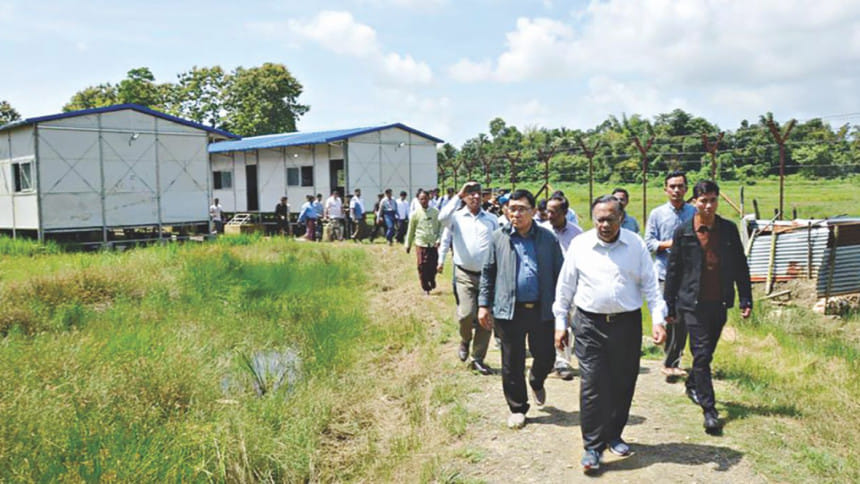
The Bangladesh delegation to Myanmar, led by Foreign Minister AH Mahmood Ali, yesterday saw the trail of wide-spread devastation suffered by the people of the northern Rakhine State.
The delegation saw this when they visited the villages around Maungdaw township to witness Myanmar's preparations for repatriation of Rohingyas.
Diplomatic sources in Dhaka and Yangon said the progress made so far in regards to accommodation facilities, particularly installation of pre-fabricated houses for Rohingya returnees, was quite insignificant.
According to a foreign ministry press statement, the delegation saw 148 houses being built in one village 20 in another for internally displaced while 50 more homes were being constructed for returnees in another village.
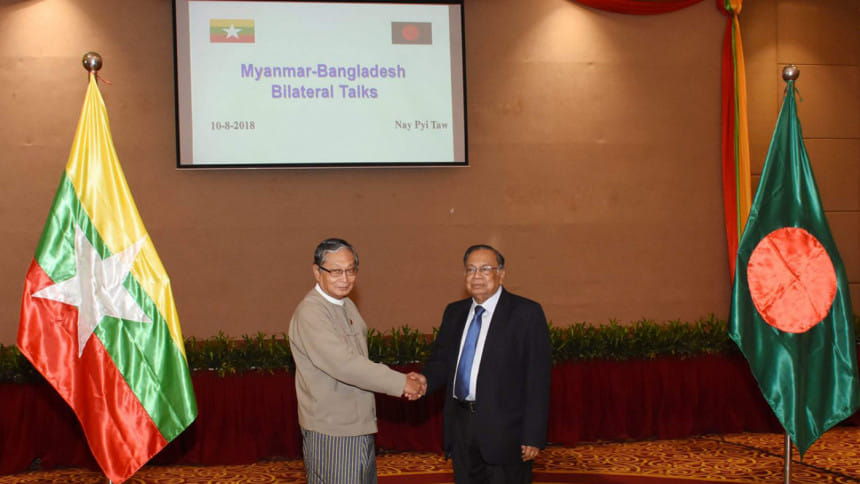
Ali, along with the Joint Working Group (JWG) members, including Foreign Secretary Md Shahidul Haque, are now on a 4-day visit. Yesterday, they visited northern Rakhine State accompanied by the Minister for Social Welfare, Relief and Resettlement of Myanmar Win Myat Aye.
Ali was taken to the border on the Myanmar side where few thousand displaced Myanmar nationals have been staying at the zero line and the Myanmar government requested Bangladesh to stop providing humanitarian assistance to those people and proposed arranging supply of humanitarian assistance from Myanmar side, said the ministry statement.
This is the first time the Myanmar government welcomed a Bangladesh delegation since the August 25, 2017, brutal military crackdown to see for themselves the progress of the repatriation process, which included seeing the accommodation facilities, particularly installation of pre-fabricated houses for repatriation of Rohingya refugees.
Shortly after the former UN Secretary-General Kofi Annan led Rakhine Commission released their recommendations for long-term solutions to the Rakhine crisis, Myanmar military launched a violent campaign which the UN and Western governments have called "ethnic cleansing".
Over 720,000 Rohingyas have fled to Bangladesh, joining more than 85,000 displaced in the crackdown in early 2017.
According to yesterday's statement, the foreign minister visited reception centers at Taung Pyo Let Yar and Nga Khu Ya and the Transit camp at Hla Poe Kaung having a capacity of thirty thousand, to demonstrate Myanmar's preparation to receive the returnees.
He also visited Shwe Zar village where around 148 pre-fabricated houses for returnees are being built with assistance from the Government of India.
He then visited Pan Taw Pyin village from where most of the 15,000 inhabitants had fled to Bangladesh. Ali was informed that the remaining Muslims and people of Buddhist and Hindu faith were currently living there.
Earlier after the bilateral meeting held on Friday, a foreign ministry press release said both sides had agreed on the need for delivering on the commitments made by parties and speed up implementation of the bilateral instruments on repatriation concluded between Bangladesh and Myanmar.
Ali emphasised the need for accelerating efforts for creating conducive environment in the northern Rakhine State.
Myanmar highlighted setting up of two reception centers, one transit camp, and engagement with UNHCR and UNDP and other initiatives as proof of her readiness to receive the returnees.
Myanmar ministers showed a keen interest on starting repatriation at the earliest and informed that houses for the returnees were being built at selected locations and more would be built.
They further informed that 42 sites have so far been identified for resettlement of displaced people from Rakhine State who have taken shelter in Bangladesh.
Both sides reached understanding on wide distribution of verification forms among the prospective returnees and building of the remaining reception centre on the Bangladesh side as agreed in the bilateral arrangements.
Bangladesh requested Myanmar to take steps to address unwillingness of prospective returnees to accept the National Verification Card (NVC). Myanmar agreed to send teams to the camps in Cox's Bazar to explain the advantages of holding NVC and to disseminate information on various steps taken by Myanmar in connection with repatriation.
Both sides agreed on the need for early settlements of the displaced people currently staying at the boundary line (Zero line) between border pillars 34 and 35 and responded positively to Myanmar's proposal of conducting a fresh joint survey of the area.
Ali had a meeting with Kyaw Tint Swe, Minister of the Office of the State Counsellor of Myanmar on Friday morning in Nay Pyi Taw. This was followed by a ministerial meeting between the two sides.
The Bangladesh side was led by the foreign minister while the Myanmar side was led by the Minister Kyaw Tint Swe.
Later in the afternoon, Ali paid a courtesy call on the Vice-President of the Union of Myanmar Myint Swe.
Bangladesh Foreign Minister will leave Myanmar today.

 For all latest news, follow The Daily Star's Google News channel.
For all latest news, follow The Daily Star's Google News channel. 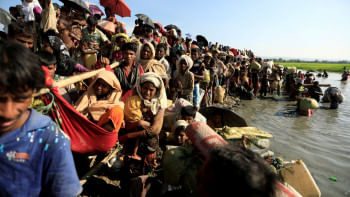


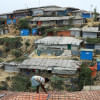
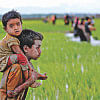
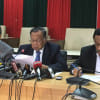
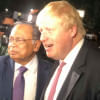



Comments